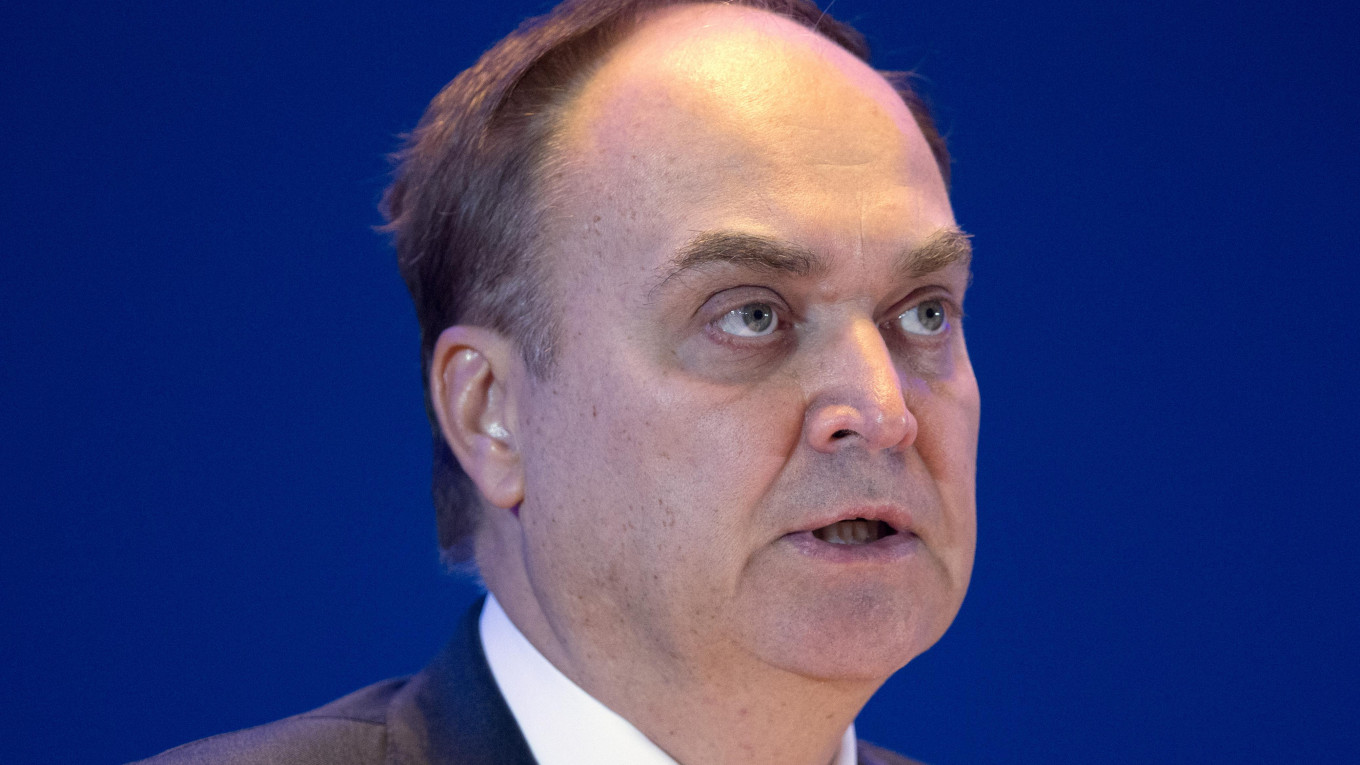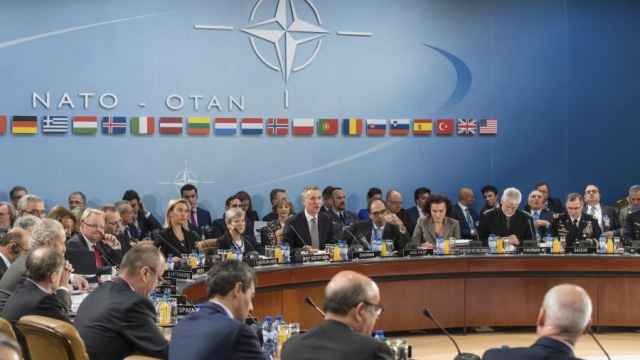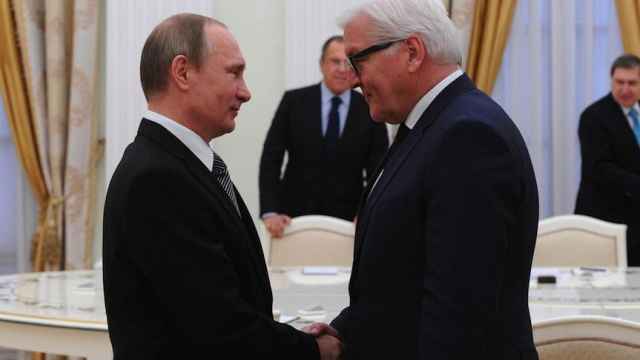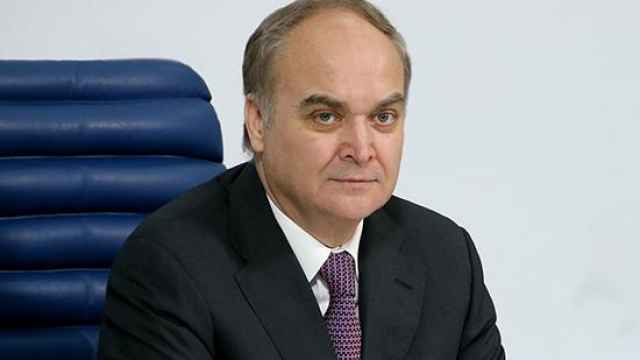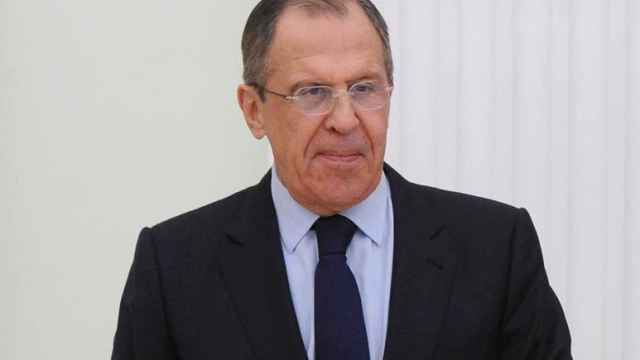Few watching the Russian Defense Ministry’s Dec. 2, 2015 press conference could have guessed the man speaking was a professional diplomat, let alone a skilled negotiator.
“[Turkish President Recep] Erdogan and his family are at the heart of this criminal business. But even if their faces are fully covered in stolen oil, they will never admit their guilt,” the man, shoulders decorated with the four stars of an army general, snapped. “The Turkish elite is directly financing global terrorism,” he added.
A lot has changed since then. Turkey’s strongman has become one of Russian President Vladimir Putin’s closest partners in the Middle East. Donald Trump is president of the United States. And the man with the four star epaulets, former Deputy Defense Minister Anatoly Antonov, is poised to receive the ambassadorship in Washington, according to Kommersant and Moscow Times sources.
The Russian press has painted Antonov, now deputy foreign minister, as a hardliner. In reality, this term has little meaning in the context of modern Russian politics. “Can you name a single person in the Foreign Ministry today who is not a hardliner?” one former diplomat, who requested anonymity, asked ironically.
But Antonov has demonstrated the two qualities most valued by the Kremlin: competence and fidelity. He has a reputation as a tough negotiator, cemented during START nuclear arms control negotiations. But it was his loyalty that allowed him to transcend arms control and rise in the foreign policy ranks. One source close to the Defense Ministry called him “more Catholic than the Pope.” He is, in short, a man the regime can trust to carry the flag.
The Military Negotiator
As the Foreign Ministry’s chief disarmament and arms control official, Antonov was loaned to the Defense Ministry in 2011 to help manage relations with the Pentagon during the ill-fated Obama-Medvedev reset. There, he was named deputy minister, given a uniform, and conferred the rank of general.
“We liked to joke that he was the foreign minister of the Defense Ministry,” the source said.
Antonov was Medvedev’s special envoy within the military as the U.S. and Russia explored new avenues of cooperation. “The Defense Ministry understood that they needed a negotiator who specialized in military issues — and especially in what the Americans call political-military affairs,” the ministry source said.
But his time at the Defense Ministry was not without complications. “He constantly tried to establish himself as the most patriotic person in the ministry, and some compared him to a bull terrier on a leash.”
None of this got in the way of his candidacy. Since at least Fall 2016, when Moscow believed Hillary Clinton would win the U.S. election, the Kremlin has been preparing to send Antonov to Washington. They appear to be sticking with that plan. On Dec. 28, Antonov was moved back to the Foreign Ministry, and promoted to the rank of deputy foreign minister.
High Up The Vertical
A posting at the Washington embassy is no trivial thing. Since the Cuban Missile Crisis in 1962, the ambassador has been one of the most senior figures in Russian foreign policy. Only the foreign minister and, more recently, the president’s foreign policy advisor outrank Moscow’s man in Washington.
This arrangement dates back to the days when Anatoly Dobrynin was Soviet Ambassador to Washington. Dobrynin was the key intermediary between the White House and the Kremlin before the establishment of the famous hotline. He played a critical role in defusing the Cuban Missile Crisis. By the time he left Washington in 1982, he was reporting not only to the Foreign Ministry, but also to the leadership of the Communist Party.
Russian decision-making today differs greatly from the Soviet era. The process has become more personalized, obscured behind the Kremlin walls. The Foreign Ministry isn’t always consulted. If reports are to be believed, Lavrov is not part of Putin’s inner circle.
The only real way diplomats and other officials can influence policy-making is through personal relationships with Putin. This will be a challenge for Antonov, who doesn’t seem to enjoy such a relationship. He will have to work through Foreign Minister Sergei Lavrov or Putin’s foreign policy aide Yury Ushakov. Foreign policy expert Vladimir Frolov told The Moscow Times that this will likely limit his role substantially.
All in all, Washington’s experience with the Russian ambassador isn’t likely to change. “There probably won’t be much demand for creativity,” says Steven Pifer, a former U.S. ambassador to Ukraine and arms control negotiator. “Antonov is a professional diplomat. Like [current ambassador Sergei] Kislyak, he will likely faithfully carry out instructions from Moscow.”
Reshuffle
Rumors are circulating that Antonov’s looming appointment is part of a wider reshuffle of the Russian foreign policy apparatus.
Kislyak is leaving Washington, and Ushakov, now 70 years old, is also expected to retire soon. Putin will want to replace the latter with somebody he knows and trusts.
Antonov’s expected appointment might also offer some clues as to the priorities the Kremlin will be pursuing in its relationship with the Trump administration.
The career diplomat was one of the faces of Russian engagement with the U.S. in Syria, an area where Putin and Trump are likely to find common grounds. But more importantly, his experience on New START leaves him well suited to engage the U.S. on arms control. This seems to be what sets him apart from other candidates. Russia, it seems, is falling back to the Soviet-era focus on disarmament and conflict prevention as the focal point of relations with the U.S.
A former Russian diplomat suggested the Russians were targeting an area where they still enjoy parity with the U.S.
“The problem is the Americans don’t think it’s that important — no one expects nuclear war anymore,” he said.
A Message from The Moscow Times:
Dear readers,
We are facing unprecedented challenges. Russia's Prosecutor General's Office has designated The Moscow Times as an "undesirable" organization, criminalizing our work and putting our staff at risk of prosecution. This follows our earlier unjust labeling as a "foreign agent."
These actions are direct attempts to silence independent journalism in Russia. The authorities claim our work "discredits the decisions of the Russian leadership." We see things differently: we strive to provide accurate, unbiased reporting on Russia.
We, the journalists of The Moscow Times, refuse to be silenced. But to continue our work, we need your help.
Your support, no matter how small, makes a world of difference. If you can, please support us monthly starting from just $2. It's quick to set up, and every contribution makes a significant impact.
By supporting The Moscow Times, you're defending open, independent journalism in the face of repression. Thank you for standing with us.
Remind me later.



